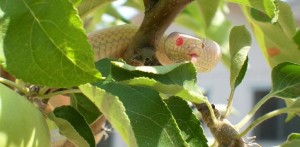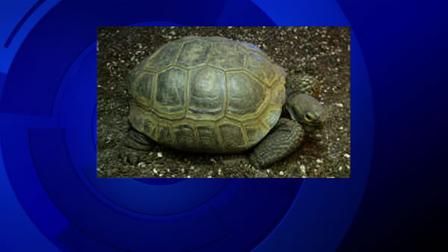
The man who was bitten by a green mamba on Tuesday was the third person to be bitten by a mamba in KwaZulu-Natal this month, according to Netcare911.
Thomas Ncube, 40, of Groutville, and three friends were going fishing when he was bitten by what is believed to be a green mamba at Tinley Manor on Tuesday morning.
“I was on my way to the beach and decided to take a shortcut using a narrow pathway through the grass. I didn’t see the snake at first, but then I felt a sharp pain and I saw the snake had bitten me on my knee,” Ncube told the Natal Mercury from his Stanger Hospital bed.
Ncube said his friends began screaming and ran off.
“The snake bit me again. I jumped and it let go, but moved forward and bit me again,” he said.
Ncube ran to a nearby road for help and stood there for a while before realising that nobody would stop. He walked to a nearby hostel but was unable to find help there either.
Ncube began frothing at the mouth, the men drove him to Shakaskraal Clinic. “The clinic didn’t have anti-venom to treat me, so the men took me a private doctor, who also did not have any.”
The doctor then called Netcare911, who stabilised him before transporting him to Stanger Hospital.
According to Netcare 911 spokesman Jeff Wicks, Ncube is the third snake bite victim they’ve treated this month.
Wicks said a Russian tourist who was jogging in Umdloti on the North Coast on March 5 was bitten twice on the leg by a green mamba.
It is thought that the snake had been driven over by a passing vehicle prior to the attack.
The other attack, which was by a black mamba, occurred on 12 March in Richmond near Pietermaritzburg.
Wicks points out that the farmworker involved was saved from serious injury by his overalls, which the snake’s fangs failed to penetrate. It is believed that he had inadvertently driven over the snake with his tractor.
Mike Perry a snake expert from African Reptiles & Venom says that a high level of snake activity in March and April is not unusual.
He attributes this to the warm weather and the fact that snakes such as mambas are looking for mates prior to going underground in winter.
He suggests that it is significant that in two of the incidents the snakes were driven over prior to biting their victims.
Snakes are not normally aggressive creatures and are not likely to attack if left alone, he emphasises. He, however, cautions that they should be stayed away from and never handled by anyone other than experts.
“Green mambas are particularly shy and I know of just one confirmed attack over the last 10 years,” Perry said.
“They are arboreal creatures which means that they live in trees and rarely come to ground and into contact with people.
If they do they will beat a hasty retreat. People would have interfered with these two green mambas in order for them to have bitten the two individuals involved.”
Perry advises people in the bush or veld to take steps to protect their lower legs from snakebites, as this is where just about all bites occur.
Thick long trousers such as jeans can help provide protection against many snakebites, stopping the fangs from penetrating or at least preventing a clean bite and injection of toxin.
Shaun Ryan, the General Manager at Netcare Umhlanga Hospital says that the Russian woman who was admitted in a critical condition to the hospital on March 5 was successfully treated with an anti-serum and has since been discharged.
According to Dr Anchen Laubscher, Netcare 911 principal medical officer, it is critical for doctors to treat any snakebite victim as soon as possible especially with a snake as toxic as a mamba.
Also of critical importance is that the victim be treated with the correct anti-serum. Usually doctors can gain an idea of what kind of snake it was from the symptoms, but in some cases the snake is also positively identified on scene, Laubscher said.
According to Netcare911, these are some things you can do when someone has been bitten by a snake:
# Get the patient to a medical facility as soon as possible.
# Keep the victim calm and quiet. Panic can help circulate the venom through the body more quickly.
# Immobilise the bitten area and keep it below the heart.
# Avoid administering any pain killing or other medication unless on the direction of a qualified medical practitioner.
# Do not allow the victim to eat or drink anything and especially not alcohol.
# Do not administer snakebite serum unless instructed to do so by a qualified medical practitioner.






